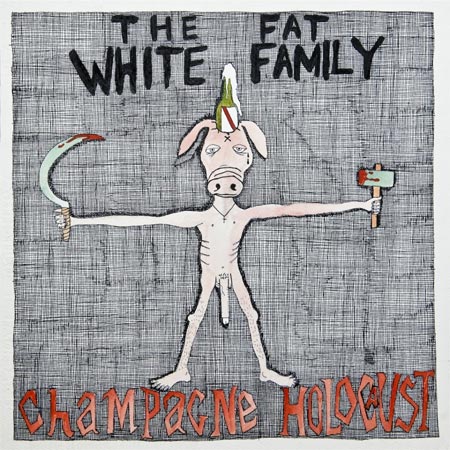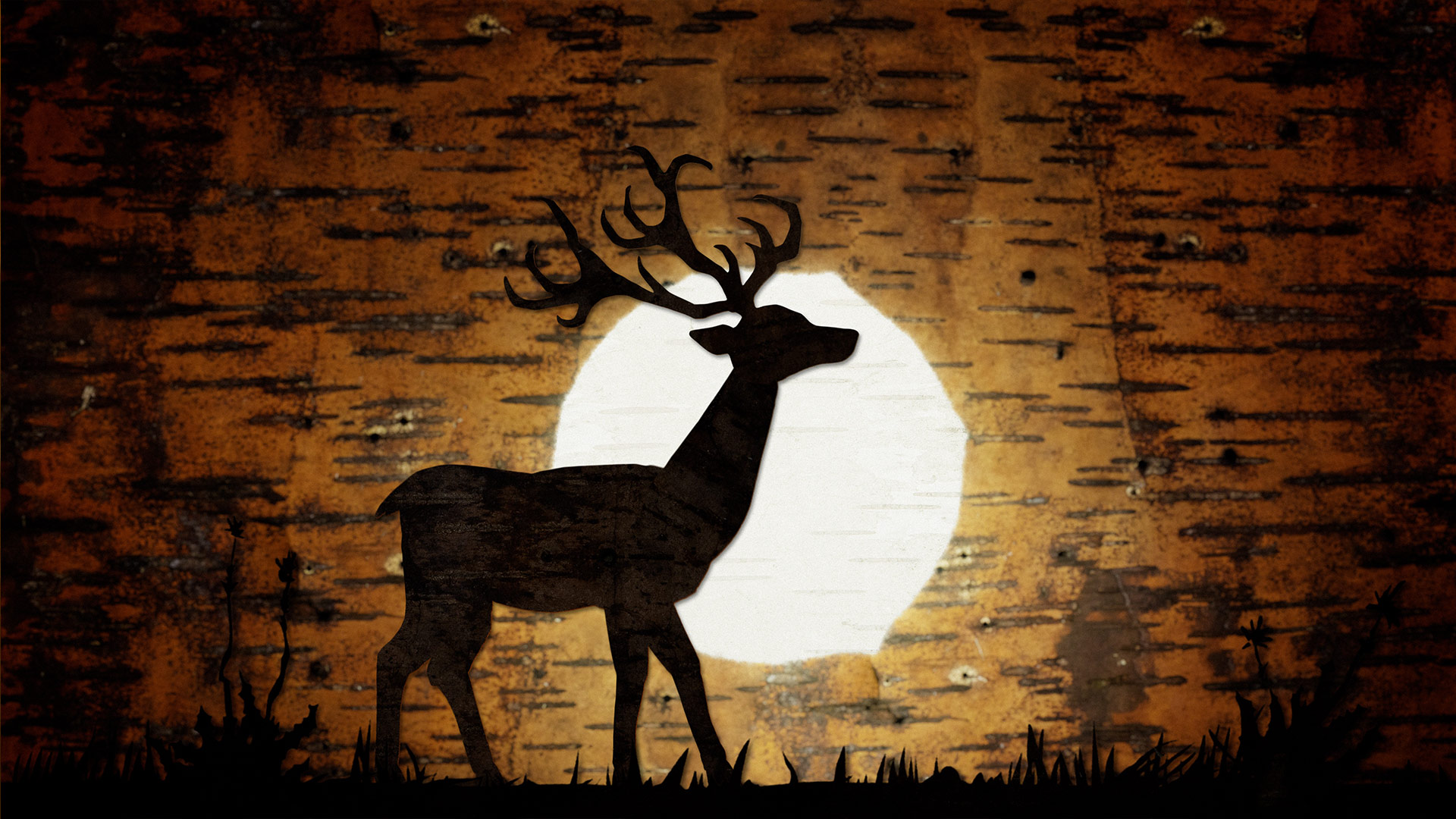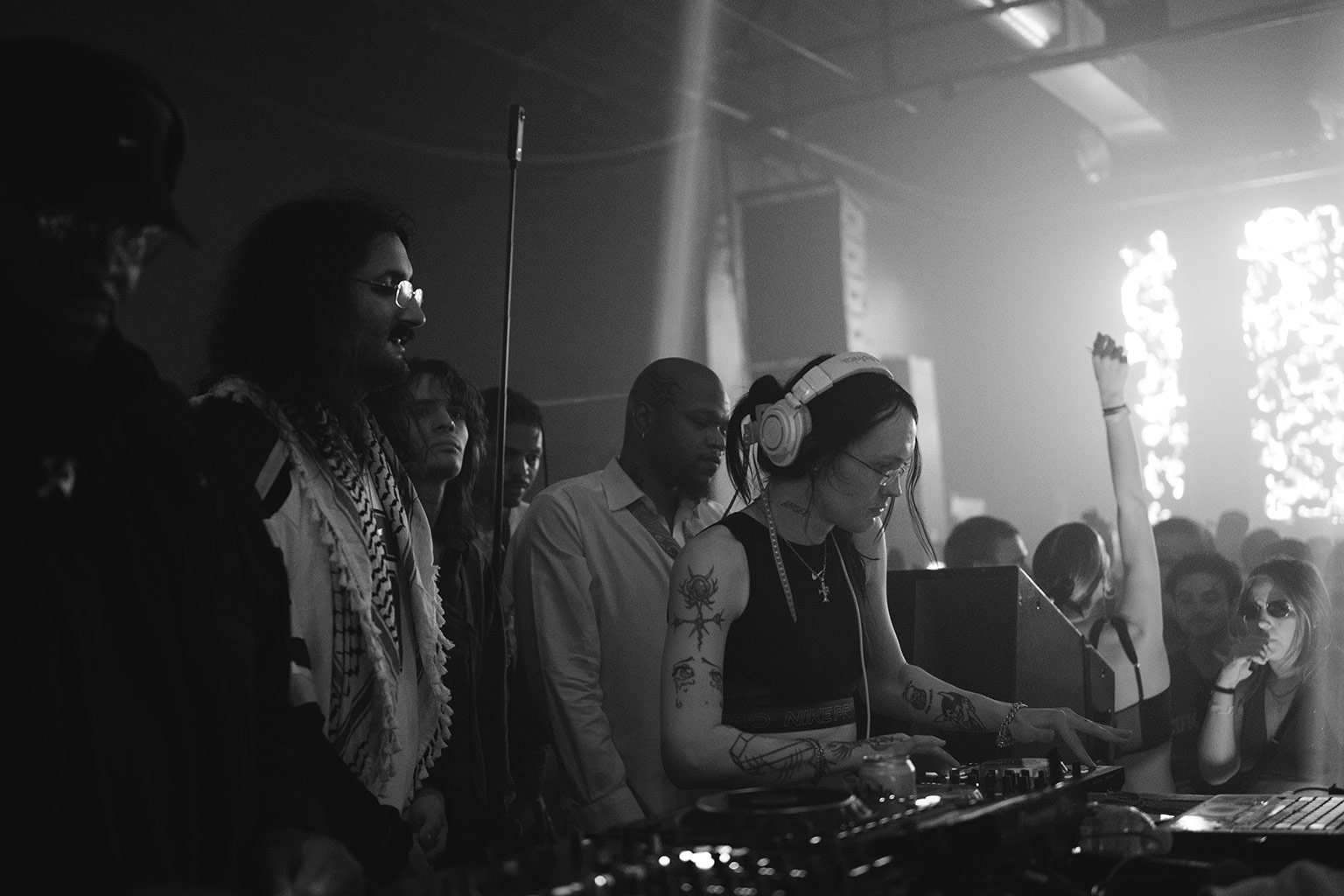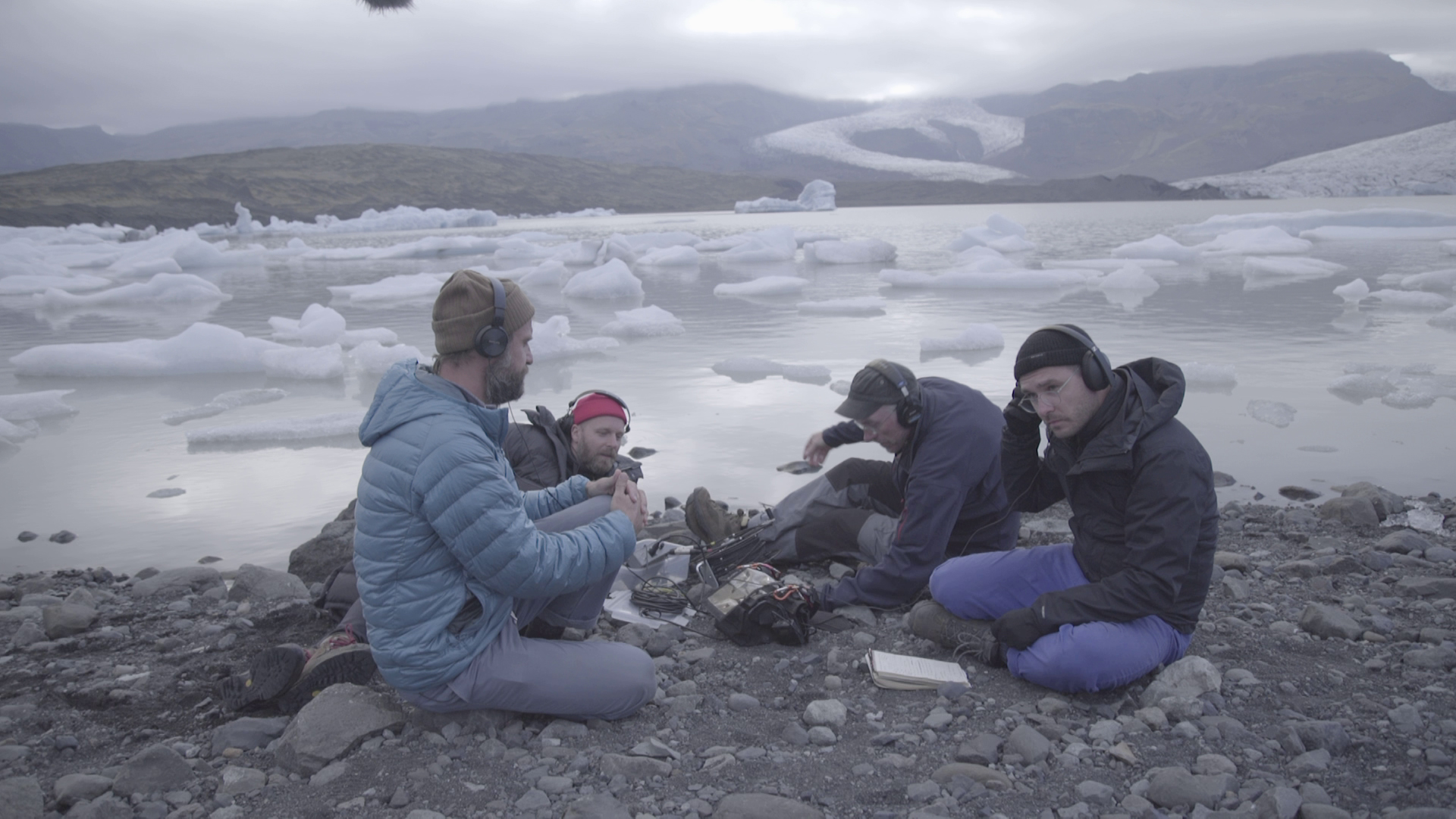Champagne Holocaust
Trashmouth Records
 My first listen of Fat White Family’s debut, Champagne Holocaust, left me thinking of notorious criminal Charles Manson. No sense emerged from this until my thoughts turned to the stark contrast, chasm even, between the monstrousness of Manson and the majesty of his music: deranged yet lucid, at once pretty yet horrific. A subsequent visit to Fat White Family’s Tumblr page displayed the visage of Manson whose own Family, it turns out, partly inspired this British band’s name.
My first listen of Fat White Family’s debut, Champagne Holocaust, left me thinking of notorious criminal Charles Manson. No sense emerged from this until my thoughts turned to the stark contrast, chasm even, between the monstrousness of Manson and the majesty of his music: deranged yet lucid, at once pretty yet horrific. A subsequent visit to Fat White Family’s Tumblr page displayed the visage of Manson whose own Family, it turns out, partly inspired this British band’s name.
Like Manson’s, their odd charm is seductive, and among the accolades they’ve accrued is The Quietus’ Tomorrow’s Cult Star Today award at BBC 6 Music Blog Awards. Some have attributed this popularity to their live show antics. Duly noted, but it’s the aforementioned contrasts in their songs that might account for this, for therein lies the captivating appeal of this debut.
Fat White Family Interview: Artistic Philosophy Q&A
The violence in some of your lyrics contrasts with, at times, quite lovely music. Are there certain people, or aspects of culture, which have particularly angered you?
We believe culture to be a dialogue from which we have long since been politely asked to leave, less those with the bottomless pockets and the thalidomide arms should end up with rotten egg on their faces. As for the noted contrast between lyric and music on some of the record, that has something to do with subtlety, a dying craft for which we alone seem to harbor sympathy.
Does the band have a mission, or rather a philosophical outlook which informs your song-writing process, or that leads you to such visceral lyricism? Do you hope to accomplish anything with making your mission known?
Our mission is clear and singular, there is nothing but the struggle. The struggle is the process and the product. The law knows no struggle, and in turn the struggle recognizes no law. What might appear visceral on this record to some we know in fact to be the sweet ringing of the harmonious bells of truth; a terrifying sound to those heavily immersed in a world of total fiction, total servitude, and base exploitation.
Has Charles Manson inspired aspects of your music (in any sense)? If so, how/when did you first become interested in him?
Charles Manson has some questionable politics; of that, there is no doubt. As an artist however he is an incredibly deft, insightful, sweet, sensitive genius. We became interested in Manson listening to the family jams record back in 2011. The cult aspect we found fascinating, especially given how long this man has been in a cage, but principally it was the unpredictability of his sound, his words, and his message that switched us on.
Do you think your lyrical content or output is considered controversial by others? If so, what is your reaction? Is stirring such controversy intentional or the result of simply following your artistic vision?
Just as the cool breeze comes to comb the sweet spring grass, our lyrics come to us. There is no intent, they are akin to air mostly, but also like water, earth, fire, all of the fundamental elements. If these spark controversy then nature itself is corrupt and must be brought to question. We have neither the time nor the intelligence to go out and shock this feral world, all we can hope to do is channel what is pure, what is true, what is actually there.
The band’s single, “Cream of the Young”, is driven by a creeping guitar and bass which make for an uneasy but captivating listen; like the call of sirens, you’re drawn into trouble, to be left enthralled and appalled. The video is a buffet of disarticulated body parts, the inside on the outside. After viewing it, you almost reproach yourself for enjoying something so vile, so hideously compelling.
If, as it did for me, the album evokes in listeners’ minds images of psychopaths and murderers, they might be unsurprised, considering that thematically, the album is replete with allusions to macabre instances of physical harm. The album’s title itself, Champagne Holocaust, connotes mass murder and destruction. But the murder of what? Well it seems they want to destroy what could be dubbed “yuppie” culture. Oh, and Disneyland is a target, too. “Bomb Disneyland”, like the rest of the record, comprises the dreamy surreality of psychedelic jams with the rawness of a garage band. On “Who Shot Lee Oswald”, the title becomes a drawling lyric which might have you convinced that Fat White Family are on the lookout for someone other than Jack Ruby.
The closing song, “Garden of the Numb”, encapsulates the band’s defining sentiment in a contemptuous ode to someone despised beneath a suitably lethargic beat and belaboured guitar: “In this cold inbred excuse for a world/ I’m lost in the garden of the numb.” After further deploring the song’s subject (“You would sell your mother’s cunt to open doors” and, “I’d like to watch you burning while you dance”), listeners are once again left to reconcile the visceral lyrics with the lament they simultaneously convey.
Let’s overlook the mission statement, however, because what might sound like a rather misanthropic social disposition cannot obscure the striking duality in these songs, and their ability to subvert your sonic expectations. Buried beneath the dirt lie well-crafted songs which, stripped of their disheveled exterior, would actually sound tranquil. “Auto Neutron”, for example, becomes a mantra that evokes the eerie, frantic calm of Modest Mouse’s “Dramamine”. A listen to Fat White Family is an oxymoronic experience, and one of the most enjoyable moments occurs at 3:56, when the guitar effects become indistinguishable from a scathing vocal roar. The mixture of rage atop a meditative track is beguiling.
I’m sure that soon enough they will be compared to Butthole Surfers or The Cramps, perhaps even Nick Cave and the Bad Seeds’ der Ballads. Fine, but I could just as well imagine some of their tracks, if written twenty-two years ago, fitting in as accompaniment to Agent Cooper’s surreal dream sequences in Twin Peaks.
Evocations of psychopathic criminals, discordant music, and lyrical violence make this album a thoroughly enjoyable monstrosity. Indeed, the monstrous is the horribly evocative pulse of this album. Thankfully, we’ll be unable to incarcerate Fat White Family’s debut and, upon its release, Champagne Holocaust will be free to roam, in all its mischievous and maniacal revelry.
Ω







[…] que a força bruta e verdadeira em detrimento de um mundo de ficção, servidão e exploração (li aqui). Pesado, mas se é verdade ou uma grande tiração de sarro, jamais saberemos. Apesar de toda a […]